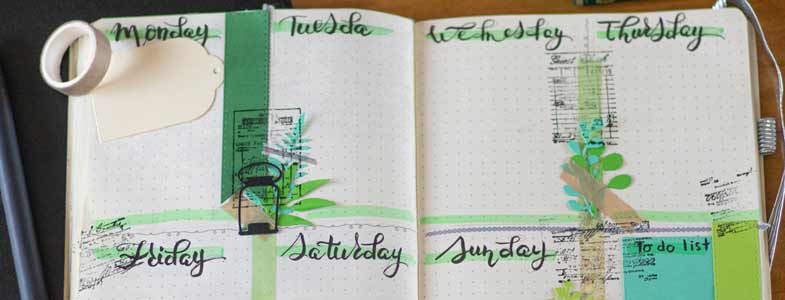
When it comes to budgeting, there are many different aspects to consider. Figuring out where your money is going and how much you have left in your account can be tricky, especially given the available online banking options and complex financial software. It is important to ask the right questions to create a functional budget plan that helps you reach your personal finance goals. While they might seem like small details, these things can make all the difference in helping you achieve your money management goals and stay on track in the long term.
Asking a good question is like doing good detective work. It’s like using a magnifying glass to bring out the smallest details. Act like a detective and solve this mystery: what are the flaws in your budget plan? What are you saying you do, but you actually don’t? Look at all of the evidence and put together a logical explanation for what happened in the previous month. Don’t trust yourself, don’t believe everything you say! Be critical and see what you can discover. Use that info to improve your plan for the future!
Before I give you concrete examples of how to ask yourself questions when you do budget planning, I want to give you some advice about asking questions in general. These are some general tips you can remember when asking a question to ensure it is clear, concise, and on point. Some things to consider include:
- Asking questions that can be answered with a simple yes or no are often not as helpful as questions that reveal more facts about yourself. For example, instead of asking yourself: “Exactly how much did I spend on clothes?”, you can ask yourself: “Why did I spend so much / or so little?”
- Be specific in your question. For example, if you are confused about a concept, don’t just ask, “What is this?” but rather, “What does this mean for my actual needs?”
- Think more critically about the information that you write down. Don’t ask only questions that support what you already believe. Ask the ones that go against your natural thinking process. For example, “Do I really need this?”, “Can I do better in this category?”, “Is this the best thing I can do?”
What are the most important budgeting questions you can ask yourself?
- What is my income?
- What are my expenses?
- What are occasional or one-time expenses?
- How much money do I need for day-to-day expenses?
- What are my short-term financial goals?
- What are my long-term financial goals?
- What are my emergency fund goals?
- How much debt do I have?
- How much can I realistically save each month?
- Can I increase my income?
- How much should I set aside for investments?
- How much should I save for retirement?
- How often should I review my budget?
Budgeting can seem daunting, but it’s important to consider answers to all of these budgeting questions to ensure that your finances are in order. Now I will break down each question with reasons to ask it and try to identify important information that the question will reveal:
1. What is my income?

When budgeting, it’s crucial to know exactly your income, specifically your take-home pay (net income or disposable income), because it sets the foundation for all your financial allocations. For instance, if your monthly net income is $3,000, this is the amount you have available for necessities, discretionary spending, and savings. It’s essential to base your budget on your net income, as this is the actual amount you receive after taxes and other deductions. Relying on gross income figures can lead to inaccuracies in your budget, potentially causing financial strain. The real challenge is dealing with multiple income sources. There are a few different ways that you can approach budgeting when you have multiple income sources. One option is to add all your income and then create a budget based on that total amount. Another option is to create a budget for each individual income source and then combine those budgets into one overall budget.
- If you choose to budget by combining all of your income sources, you will first need to add up all of your income and then determine what percentage of that income comes from each source. Once you know the percentages, you can create your budget categories and allocate a certain percentage of your total income to each category. For example, if you have three income sources and you want to allocate 20% of your overall income to housing, you would then budget $600 for housing if your total monthly income is $3,000.
- If you choose to budget for each income source, you must create a budget for each source and combine the budgets into one overall budget. This can be helpful if you have income sources with different purposes or want to keep your spending separate for each source. For example, you may have one income source that is your main source of income, and you use it to cover your living expenses. You may have another income source that is used for savings or investments. By creating a budget for each income source, you can more easily track your spending and ensure you are not overspending in any area.
2. What are my expenses?

This is basically the core of budgeting. You need to answer this question to identify your actual spending (and make sure you don’t go over budget), compare with examples from other people, and ensure you don’t indulge too much in expensive eating habits. Assuming you are living in the United States, here are some general guidance numbers I got from the Bureau of Labor Statistics: The average person spends about $7,500 per year on food. Housing costs will vary depending on where you live and whether you own or rent your home, but the average person spends about $20,000 per year on housing. Transportation costs will also vary depending on factors like whether you own or lease a car, how much you drive, and public transportation options in your area, but the average person spends about $9,500. Check out the table for yourself and compare how much you spend in each category. Also, consider your specific location because things may vary greatly based on city and country. Search online for more accurate data regarding your specific location. You should know that there are also YouTube videos in which people share their real numbers with the world, and they also specify the general area where they live. Search on YouTube for “budget with me” videos, and also add your location in the query, like this: “budget with me New York,” and you will find some good examples, like this video: “BUDGET WITH ME | Monthly Budget while Living Alone in New York as a 20 something” or like this one for Canada: August 2022 Budget With Me 💸🤍what I spend in a month living in Canada.
More specific questions you should ask yourself:
- Am I Tracking Well?: Regularly review your expenses to ensure you stay on budget. Compare current spending with past months to identify any changes or trends.
- Fixed vs. Variable Income?: Differentiate between regular, predictable expenses (like rent) and those that fluctuate (like utility bills). This helps in planning and adjusting your budget accordingly.
- Analyze expenses for the Last 3-6 Months: Get a clearer picture of your financial habits and necessary adjustments.
- Do you need to set up spending limits?: Based on your expense analysis, set realistic limits for different categories, ensuring you live within your means while meeting your financial goals. This practice helps in avoiding overspending and maintaining financial stability.
Analyzing Spending: Did I Overspend?
To determine this, compare your actual spending against your budgeted amounts. If you consistently exceed your budget in certain categories, it’s a clear sign of overspending. To stop this trend, first identify the areas of excess. Common culprits include dining out, entertainment, or impulse purchases. Implement strategies to curb this behavior, such as setting stricter spending limits, using cash instead of cards, or employing the envelope budgeting system. Additionally, consider ways to cut down on spending, like opting for home-cooked meals over eating out, canceling unused subscriptions, or seeking cheaper alternatives for regular expenses. Adopting these measures can help you regain control over your finances and align your spending with your budget goals.
3. What are occasional or one-time expenses?

The occasional expenses are items that you do not purchase on a regular basis but still need to account for in the budget plan nonetheless. While budget planning, people typically set aside a small amount of money each month to cover these types of expenses, which helps ensure they are prepared when they occur. Answering and identifying these budgeting questions will allow you to plan in advance so they don’t surprise you. After all, they are expenses you will certainly do. The real question is this: will you be prepared for them or not?
Here are a few examples of one-time or occasional expenses:
- Gifts: I budget $50 per month for gifts. This covers birthdays, holidays, and other special occasions.
- Clothing: I budget $100 per month for clothing. This covers new clothes, shoes, and any other items I may need.
- Home Maintenance: Occasionally, you may need to make repairs or replace appliances in your home. Repairs to the house fall in this category as well. A few examples could include painting, fixing a leaky roof, repairing the shower, or making other household repairs.
- Miscellaneous: I budget $50 per month for miscellaneous expenses. This covers things like laundry, dry cleaning, and other random costs.
- Health Care: While you may not have to see the doctor every month, you will probably need to visit the doctor or dentist occasionally. You may also need to buy prescription drugs or other health-related items. This has to be included somewhere in your budget plan
All these are things you will eventually have to spend money on. They might not be included in your initial plan; if they are not, you will feel shocked each time you have to deal with them and can’t postpone them anymore. Knowing that you have money set aside can help you relax and feel less stressed.
4. How much money do I need for day-to-day expenses?

There is no one-size-fits-all answer to this question, as everyone’s day-to-day expenses will vary based on their individual lifestyle and needs. However, a good general rule of thumb is to budget $50 to $150 per day for food, transportation, and other basic necessities. Of course, this amount can fluctuate depending on your specific circumstances. If you live in a more expensive city or have a higher standard of living, your costs will naturally be higher. Similarly, if you are a thrifty shopper or can live on a tight budget, you may be able to get by on less money. Ultimately, the best way to determine how much money you need for daily expenses is to track your spending for a few months or so to get an idea of your average costs. A good idea to get better estimates of what other people in your area pay for day-to-day expenses is to check YouTube. Do a search for “cost of living in“ and add your location. You can easily find videos like these: Cost of living in New York City * How Much Do I Pay?!, or Cost of Living in London | Minimum Salary to Live Comfortably in London.
5. What are my short-term financial goals?

You typically want to achieve short-term financial goals within the next year or two. They might include saving for a down payment on a house, paying off high-interest debt, or building up your emergency fund.
Answering this question is important because it will help you create a better budget plan for your actual needs. This might involve setting up a budget and sticking to it, cutting back on unnecessary expenses, and automating your savings so that you’re regularly putting money away.
In their short-term financial goals, people usually include the emergency fund to have a cushion to fall back on in case of unexpected expenses. It may include buying tools like a laptop, a more advanced phone, or something you really miss that can improve your life by a large margin.
With a clear plan and a bit of discipline, you can achieve just about any short-term financial goal you set your mind to.
6. What are my long-term financial goals?

This is another important question you should ask yourself when budgeting. Long-term financial goals can help you set aside money for major life events, such as buying a home, weddings, or retirement savings. Additionally, having long-term financial goals can give you a sense of financial security and peace of mind.
Here are a few reasons why you should have long-term financial goals:
- To help you stay motivated
- To have a plan that you can follow
- To be more organized
- To be more confident
- To make more informed decisions
People with long-term financial goals often have more incentive to keep pushing their goals up. This motivates them to achieve them and allows them to stay focused on their goal. Here are a few examples of long-term financial goals:
- save up at least 20% of the purchase price of the house so that you can get a good interest rate on your mortgage
- save up enough money to buy a house within the next five years
- make sure that you have enough saved so that you can enjoy your retirement without worry
- have enough money to travel and enjoy life
Once you know your goals, you can start figuring out how much you need to save. If you want to retire in 20 years, you’ll need to save more than if you want to retire in 30 years. And, of course, the sooner you start saving, the better.
Achieving sufficient savings to retire is usually people’s greatest long-term financial goal. And socking away 10% to 15% of every paycheck for this purpose is the common rule of thumb. However, this rule of thumb doesn’t work for everyone. If you’re saving less than 10% of your income and you don’t have a significant other or children to support, you might want to consider increasing your retirement savings. On the other hand, if you’re just starting out, the recommended percentage might be closer to 20%. Even if you’re in your late 20s or early 30s and feel far from retirement, saving now can make a big difference in your future. Even small amounts saved over time can add to a healthy retirement fund.
If you’re unsure where to start, you can talk to a financial planner to help you develop a savings plan that meets your unique needs. You may also want to consider opening a high-yield savings account to earn more interest on your savings. Whatever you do, don’t forget to keep your long-term financial goals in mind to stay motivated to save.
No matter what your long-term financial goals may be, it’s essential to start saving early and make regular contributions to your savings account. It is important to remember that reaching your long-term financial goals is a marathon, not a sprint. Stay disciplined and patient, and you will eventually reach your goals.
7. What are my emergency fund goals?

An emergency fund is a financial cushion that can be used in times of need. It can be smaller than $1,000 and can be used to cover unexpected costs such as medical expenses and repairs. It is a place where you can put money to help you if something bad happens or if you find yourself in a difficult situation. The amount of money you need to have in your emergency fund will vary depending on many specific factors. Your emergency fund should not be too small, as this could overwhelm you and limit your options regarding crisis funding. When you set your emergency fund goals, the rule of thumb is to set aside at least three to eight months’ worth of expenses, depending on your lifestyle, monthly expenses, income, and number of dependents. You should expect the answer to this question to change in time, which is natural because your values and circumstances also change.
8. How much debt do I have?

This question might sound obvious, but answering it might seem harder than it looks. Especially for people with a lot of debt and debt from many different sources.
There are a few different ways to calculate your debt. One way is to add up all of the debts that you have simply. This includes any outstanding balances on credit cards, loans, and other debts. Another way to calculate your debt is to use your credit report. Your credit report will list all your debts, current balances, and interest rates. You can use this information to calculate your total debt, as well as your monthly payments and interest charges.
You can do the following things to shed some light on your debt situation. First, you need to know the balance of each of your debts, which you can find on your most recent statements. Next, you need to know the interest rate for each debt, which you can find in the terms and conditions for each account or by contacting your lender directly. Finally, you need to know the minimum payment required for each debt, which you can find on your statements or by contacting your lender.
The average American has a total debt of about $30,000. This average debt is divided into four categories: personal debt, balance on credit card, short-term debt, and long-term debt (which often includes student loans). Knowing your debt will help you make a better budget plan with concrete steps on how to repay it. Remember, repaying debt is as important as breathing. If you stop for long enough, you’ll suffocate.
The next smart question to ask is: “How much should I pay down each month?” Consider your minimum required payments and your financial capacity for additional payments to answer this. For instance, if you have a student loan of $20,000 at a 5% interest rate with a minimum monthly payment of $200, you might decide to pay an extra $100 monthly if your budget allows. This extra payment can significantly reduce your interest over time and expedite the loan payoff, freeing up resources for other financial goals sooner.
9. How much can I realistically save each month?

To answer this question, you must be diligent and calculate your income and expenses for a few months, average them out, and then calculate the difference. This is influenced a lot by your income and spending habits. Usually, people can save around $200 to $300 per month, but this number will vary greatly. Generally speaking, this number should be anywhere between 3 to 6 percent of your monthly income. If you can do higher numbers, you are doing a great job. It’s not easy. Experts agree that saving 20% of your net pay is a good habit to get into. This is not easy to maintain, however. If you hope to retire early, you may have to save 50% of your income every month. If you want to retire in your seventies, you probably don’t want a demanding savings target.
10. Can I increase my income?

In general, supplementing your income can be a good idea if you are struggling to make ends meet or if you want to boost your savings. Here are a few general tips to keep in mind if you’re considering increasing your income:
- Make sure you have a clear purpose for doing so. Whether you’re looking to boost your savings or simply want extra spending money, setting a specific goal will help you stay on track.
- Do your research. There are various ways to supplement your income, so finding the option that best suits your needs is important. For example, you might consider taking on a part-time job, starting a side hustle, or investing in a passive income stream.
- Consider the tax implications. You may be subject to taxes depending on how you supplement your income. For instance, if you earn money from a part-time job, you will likely have to pay income taxes on that income.
- Be mindful of your time commitment. Supplementing your income can be a great way to boost your finances, but it’s important to ensure you don’t bite off more than you can chew. If you’re already working full-time, for example, taking on a second job may not be realistic.
- Starting a side hustle can be a strategic way to supplement your income. It allows you to pursue a passion or utilize a skill to earn extra money, potentially turning a hobby into a profitable venture. When considering a side hustle, assess the market demand for your offering, start-up costs, and how much time you can realistically dedicate.
11. How much should I set aside for investments?
This question assesses your financial goals, risk tolerance, and current financial situation. A common guideline is to aim for a certain percentage of your income, such as 10-15%, to be directed into various investment accounts. This can include retirement accounts, stock portfolios, or other investment vehicles. The exact percentage will vary based on individual circumstances, such as age, income level, financial goals, and existing financial obligations.
In exploring options for investment accounts, it’s useful to look into what modern tools have to offer. In my Acorns investing app review, I’ve tested how it works, confirming it’s a safe and secure option for micro-investing. Similarly, my RocketMoney app review delves into its budgeting and financial tracking capabilities. While Acorns focuses on investment, RocketMoney is more about managing expenses and subscriptions, offering a comprehensive view of your financial health. Both apps serve distinct purposes and can be valuable tools in your financial arsenal.
12. How much should I save for retirement?
A general guideline is to save around 10-15% of your income for retirement, but this can vary based on factors like age, when you plan to retire, and your desired retirement lifestyle. For example, if you’re in your 30s and earn $50,000 annually, aiming to save $5,000 to $7,500 per year for retirement can be a good start. If you’re starting later, say in your 40s or 50s, you might need to save a higher percentage to meet your retirement goals. It’s also important to consider the role of employer-matched retirement plans, which can significantly boost your retirement savings. Adjusting your savings rate based on age, income, and retirement aspirations can ensure a more comfortable and secure retirement.
13. How often should I review my budget?
This practice is crucial as it allows you to adjust your spending and saving habits in response to changes in your financial situation. For an effective budget review routine, consider a monthly check if your income and expenses are relatively stable. For example, if your monthly income is $4,000 and your expenses typically range around $3,500, a monthly review can help ensure you’re on track. A bi-weekly or weekly review might be necessary if your income varies due to freelance work. For instance, if your income fluctuates between $2,000 and $3,000 monthly, more frequent reviews allow you to adjust your budget according to your current financial situation, ensuring optimal management of your resources.
Final words
Now that you have some directions on asking questions about your budget, let’s put it into practice! Take out your budget plan and treat it like a detective treats a suspect. Don’t leave anything unexplored!
